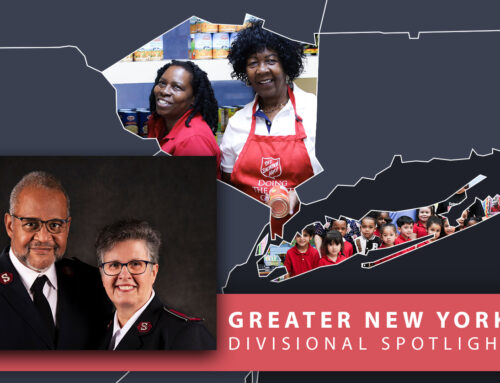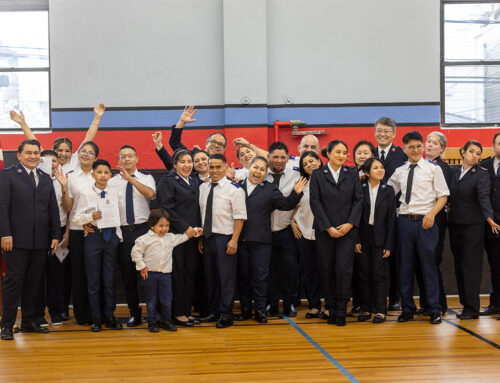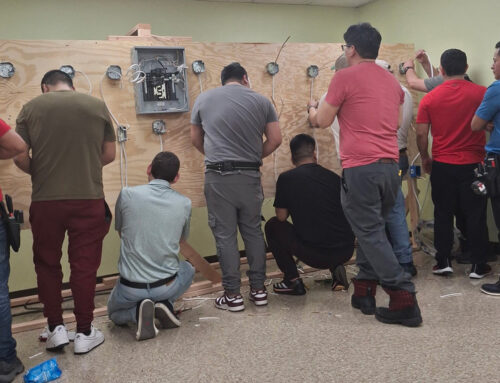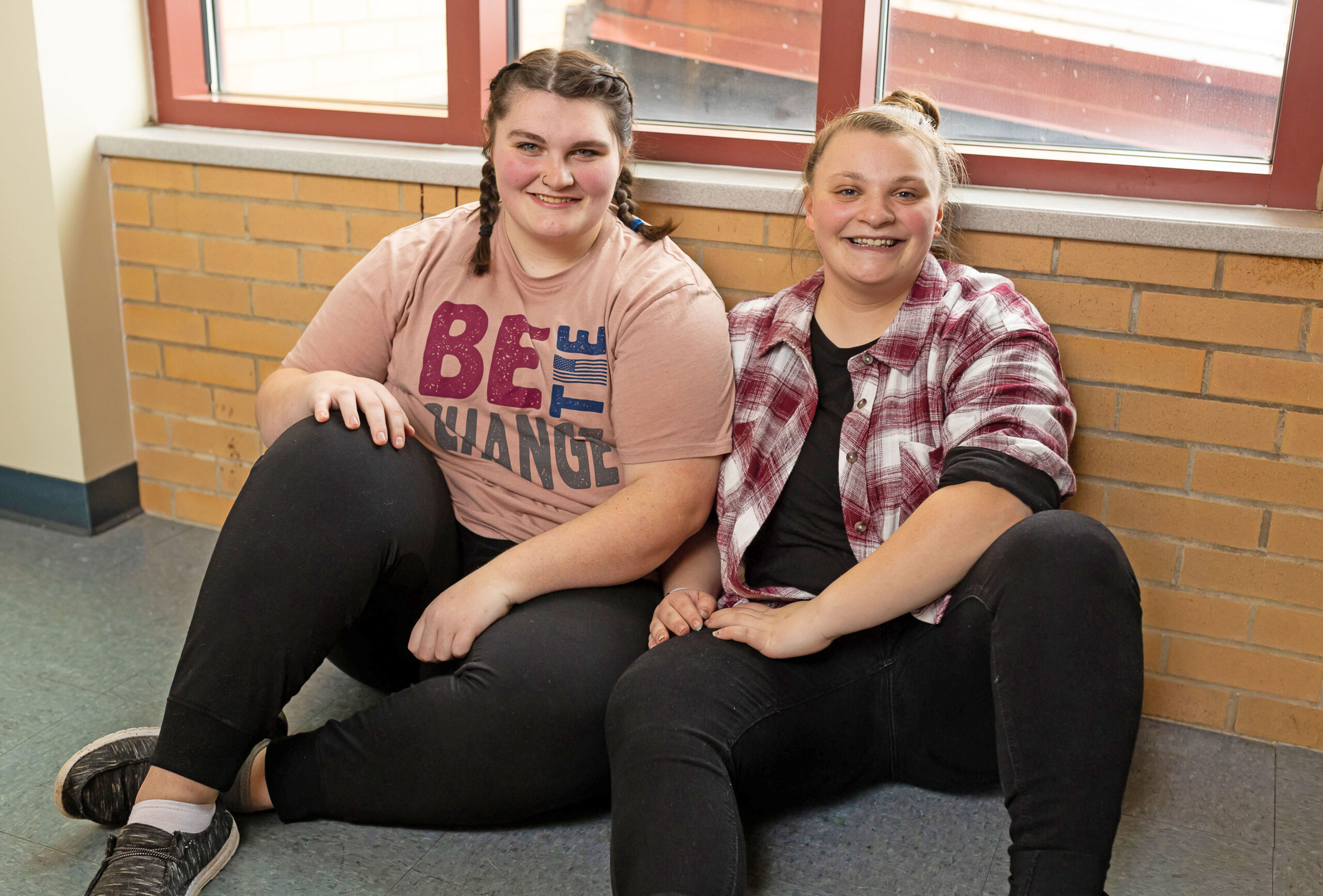
They have servant hearts
by Robert Mitchell
“He comforts us in all our troubles so that we can comfort others. When they are troubled, we will be able to give them the same comfort God has given us.” —2 CORINTHIANS 1:4 (NLT)
Honesty and Brittin Winters know what it’s like to be in need. Their family is finishing up two years in the Salvation Army’s successful Pathway of Hope (POH) program, an experience that has these teens on fire about giving back.
It’s not uncommon to see Honesty and Brittin teach in the after–school program, pass out free coats, or volunteer in the soup kitchen at The Salvation Army in Oil City, Pa.
“The Pathway of Hope program helped to get me and my sister new beds,” says 18–year–old Brittin, a senior at Oil City Senior High School. “They also gave us winterwear. They helped my parents when we didn’t have enough money for the mortgage. We’re grateful.”
Brittin was only in 3rd grade and her sister in 4th when they started going to the Salvation Army’s after–school program for homework help. It wasn’t long before the girls were invited to a church service there, and they began attending in 2012.
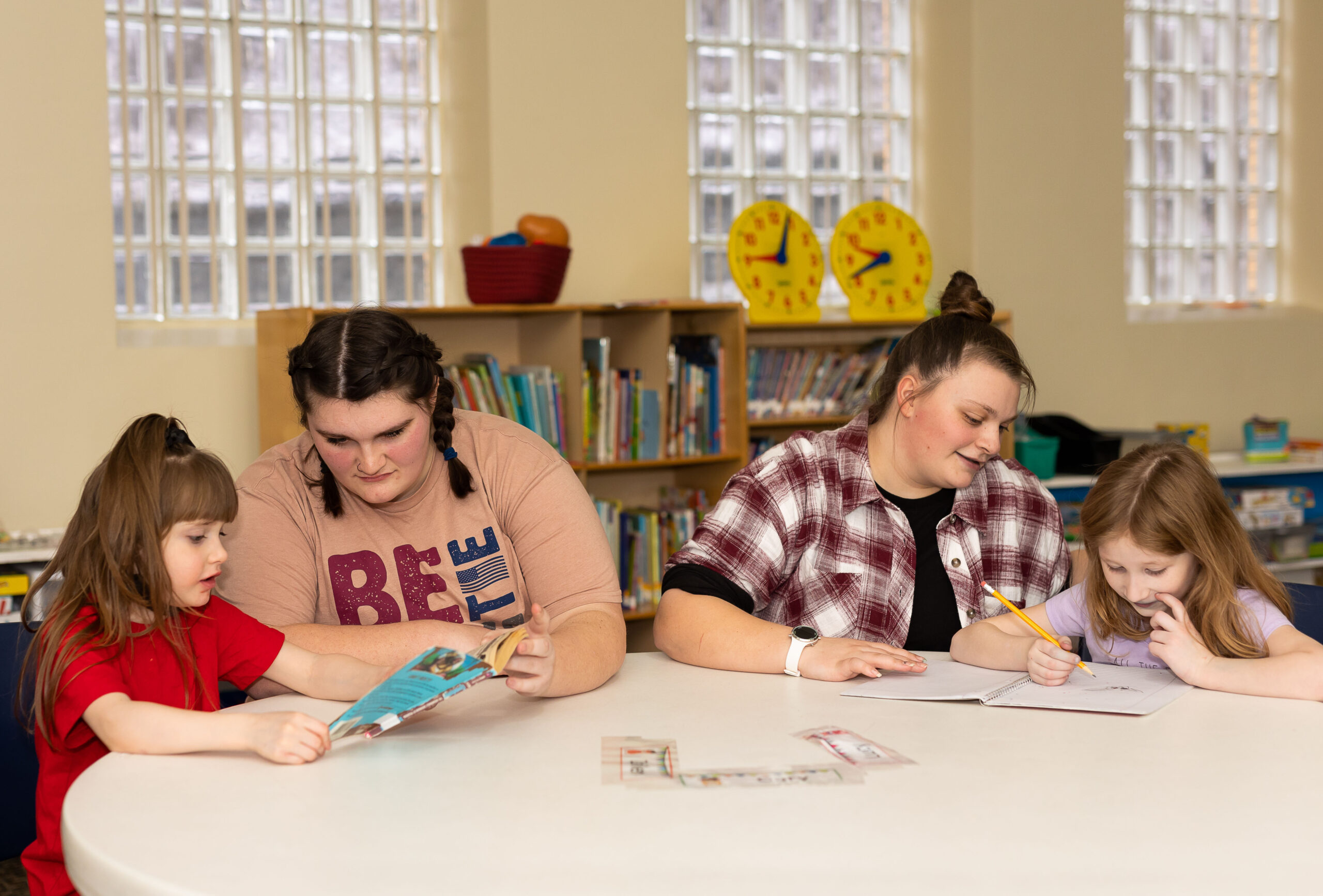
“I started going and I actually liked it a lot,” Brittin recalls. “I basically built a family there. They are all a big part of my life.”
The girls invited their mother, Jessica, to attend a service on Mother’s Day in 2013, and she’s also been attending ever since.
Goals set and met
Major Laura Duesenberry, pastor of The Salvation Army church in Oil City, said the family fit in well and was willing to volunteer.
“We recognized there were some specific needs there as far as breaking the generational poverty,” Duesenberry said.
Kimberly Harned, the regional case manager for Pathway of Hope (POH), said her predecessor, Molly Minman, approached Jessica two years ago and asked if she would be interested in the program.
POH, according to the Salvation Army’s USA Eastern Territory website, “uses an intensive, client–centered case management approach to empower families and address root causes preventing them from becoming more self–sufficient. By breaking the cycle of crisis, in conjunction with our extensive community partners, it offers a hand up as opposed to a handout and enables a path out of poverty.”
Clients can find help, which includes job training, health services, childcare, education, housing options, and legal services. The case managers act as mentors and provide long–term case management.
Harned said the Winters family was perfect for POH. Jessica is on disability and her husband, Brice, works in a scrapyard. The family often struggled financially.
POH participants set goals. Jessica’s were to improve her health and fitness, improve family relationships, get a reliable car, and see both of her daughters obtain their driver licenses and graduate from high school.
“The goals are almost met,” Jessica says. “There’s just one more goal and that’s to see Honesty graduate.”
God’s furry creatures
Duesenberry said the intensity of the POH program kept the family focused and, “I think they have worked really well in that program.”
Brittin and Honesty said the POH program helped the family get a mechanical part for its furnace in the winter and made Christmas gifts possible during a time of financial need.
“They helped in many ways, not only financially, but they were there to listen when I was having a hard time,” Jessica said. “I’m glad I didn’t give up when things got tough. I now know that when you need help, don’t be afraid to ask.”
Honesty, 19, who graduated from high school last spring, said Harned wrote a referral that helped her land a job at the Venango County Humane Society in nearby Seneca, Pa. She hopes to someday be a veterinary assistant and is taking online courses at Penn Foster College to learn those skills.
The sisters love animals. Brittin, who currently works in a nursing home but wants to be an animal control officer, said the family has two dogs, two Guinea pigs, a tree frog, an Eastern newt, and a cat.
Honesty and Brittin may have been young when they started attending The Salvation Army, but they have only gotten more involved as they’ve grown. The girls were part of the church’s successful Bible Bowl team and Jessica said she saw an immediate difference in their behavior once they started attending.
“They wanted to go,” she said. “They weren’t home wondering what to do. They were involved and doing things at the church. That opened them up socially and made them more outgoing.
“It was a stress release for me because I just didn’t understand some of their homework.”
Seeing themselves in others
The sisters also began assisting other children with their homework at the after–school program. They see a lot of themselves in the kids they help.
“I like being one–on–one with the kids and just talking with them,” Brittin said. “I went there for homework. I struggled with it, but I had a lot of mentors who would help me. They taught me that it’s all about achieving my goals. So, I want to help these kids achieve their goals. Some of them don’t want to do their homework.”
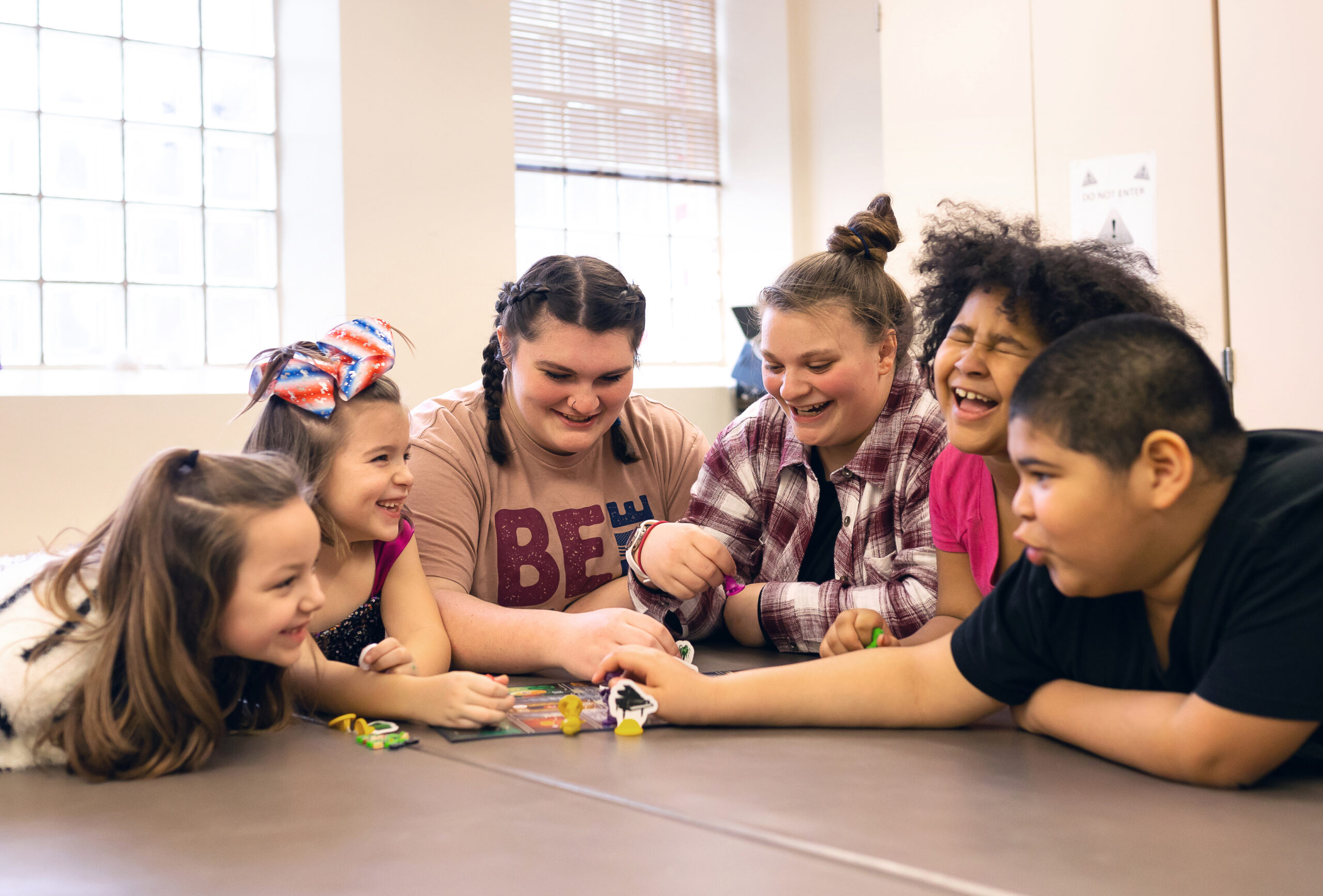
Honesty agreed. “Sometimes I get joy from teaching the kids, but other times I get angry because they don’t listen,” she said.
In 2016, both girls joined their mother as volunteers in the church kitchen and assisted her in the lunch program.
“She is always volunteering, whether it’s in the kitchen or the front office or unloading food,” Harned said. “Anything they need, she helps with.”
The girls are also involved in women’s ministry, which Brittin especially likes.
“They’re basically all my grandmothers,” Brittin said.
The greatest part
Honesty and Brittin are often asked around the church about their unique names. Honesty got hers from a bridesmaid in a wedding her mother attended, and she simply liked the name. Brittin (pronounced bright–tin) got her name after her father was momentarily blinded by the sun while driving to the hospital the day she was born. He saw a metal roof and commented, “That’s some bright tin!”
They found love, support, and material help at the church, but most importantly, Brittin and Honesty became Christians there.
“Christ means everything to me and has helped me through my struggles,” Honesty said. “He’s blessed me every day as I build a new future.”
Brittin agreed, adding, “Christ means a lot in my everyday life. He helps me through my struggles and my everyday being. He just lets me see the better in the day.”
Duesenberry said Brittin and Honesty are “a huge help to us.” They particularly like helping with Project Bundle Up, which provides winter outerwear for people in need.
“They always volunteer and want to be a part of that,” she said. “When they’re not working, they’re here volunteering. Despite their need, they’re willing to give of their time and their efforts. They want to be able to give back. For them, it’s not always about receiving or taking.
“They very much have servant hearts.”
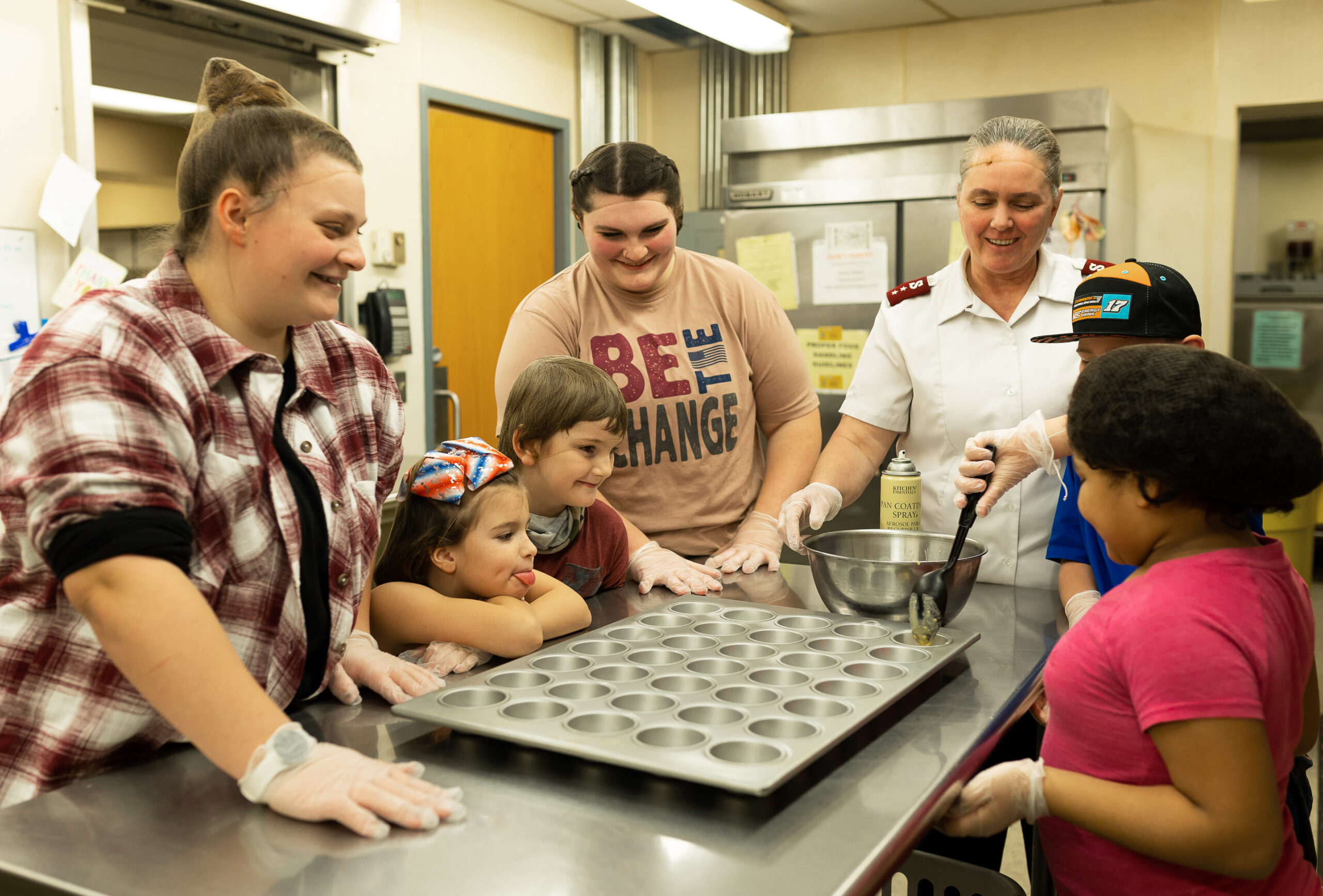
MORE ABOUT PATHWAY OF HOPE
salarmy.us/poh
The Salvation Army’s Pathway of Hope (POH) initiative provides individualized services to families with children. These families desire to take action to break the cycle of crisis and vulnerability that repeats generation after generation. POH seeks to address the root causes of poverty while continuing the Army’s history of compassionate serving. By helping families overcome challenges such as unemployment, unstable housing, and a lack of education, POH leads families down a path toward increased stability and self–sufficiency.
POH is offered in several Salvation Army corps. It introduces families to both The Salvation Army and to other services that are available within their community. These services offer a network of support, a sense of belonging, holistic programs, and spiritual guidance. POH is also a service connector to job training, health services, childcare and education, housing options, legal services, and much more.
Kimberly Harned, a regional case manager for Pathway of Hope (POH) in The Salvation Army’s Western Pennsylvania Division, said the program’s clients appreciate everything.
“I think it’s reassuring for them to know that somebody cares, and we’ll help them with what they need,” she said. “I don’t do everything for my clients, I help them with resources; I refer them to resources; I also help them gain confidence to advocate for themselves. I think it just gives them a little more confidence in helping themselves and knowing that somebody cares.”
Read more from the latest issue of SAconnects.

